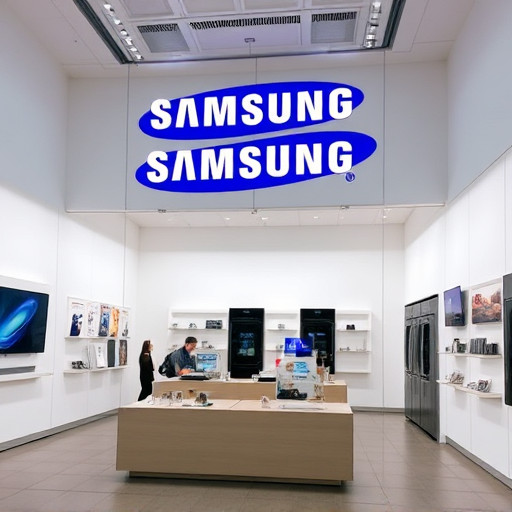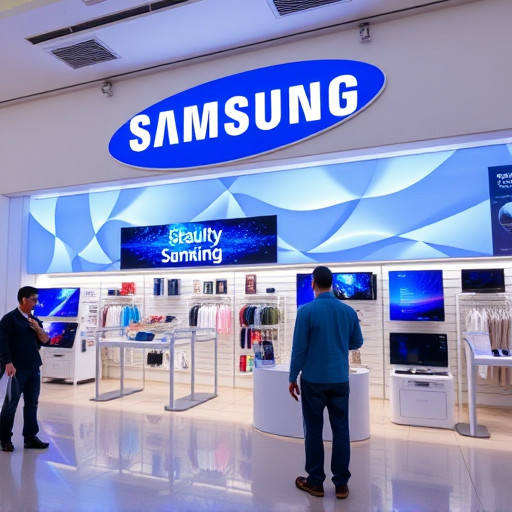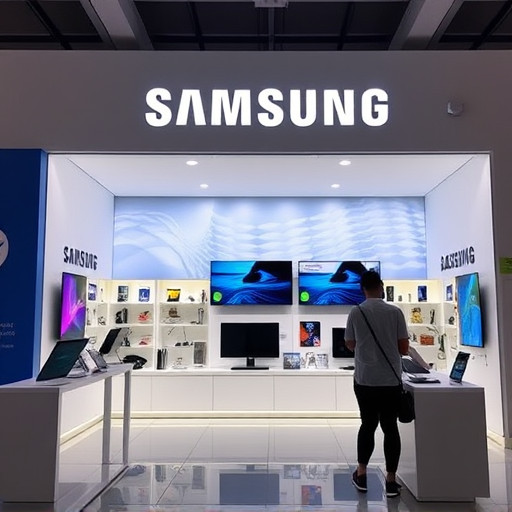Samsung: A Comprehensive Analysis
Introduction
Samsung, a global technology giant, has left an indelible mark on the digital landscape. This South Korean conglomerate is not just a household name but a driving force behind some of the most innovative products we use daily. From smartphones and home appliances to semiconductors and display technologies, Samsung’s reach spans across industries. This article aims to provide an in-depth exploration of Samsung, its multifaceted operations, and its profound impact on our world. We will delve into its history, global presence, technological innovations, and the challenges it faces while shaping the future of technology.
Understanding Samsung: A Multinational Conglomerate
Definition and Overview:
Samsung is a multinational conglomerate headquartered in Suwon, South Korea. Founded in 1938 by Lee Byung-chull, it has evolved from a modest trading company into a global corporate giant with interests in diverse sectors. Today, Samsung operates as a holding company with over 80 subsidiaries involved in electronics, semiconductors, construction, hotels, and more.
Core Components:
- Electronics: Perhaps the most well-known aspect of Samsung, its electronics division encompasses consumer products like smartphones (under the Galaxy brand), tablets, TVs, home appliances, and wearable devices. It also produces components such as memory chips and displays.
- Semiconductors: Samsung is a leading manufacturer of memory chips, including DRAM and NAND flash memory, which are essential for various electronic devices. Its semiconductor business is a significant contributor to global tech trends.
- Other Ventures: The company has ventures in construction, heavy industry, financial services, and media. For instance, Samsung C&T is a construction and engineering subsidiary, while Samsung Electronics owns the mobile payment service, Samsung Pay.
Historical Context:
Samsung’s early years focused on trading and import/export businesses. In the 1960s, it ventured into manufacturing, producing electronics like televisions and radios for the domestic market. The company’s expansion began in earnest in the 1970s with investments in various industries. By the late 20th century, Samsung had established itself as a global player, especially after entering the computer and mobile phone markets. Key milestones include launching the first color TV in 1978, establishing Samsung Electronics in 1983, and introducing its iconic Galaxy smartphone series in 2009.
Significance:
Samsung’s significance lies in its ability to shape global technology trends and influence consumer behavior. Its diverse business portfolio allows it to adapt to changing market demands and invest in emerging technologies. As a major employer and economic contributor, Samsung plays a pivotal role in South Korea’s economy and is also a key player on the international stage.
Global Impact and Trends
International Influence:
Samsung has established a strong global presence with operations in over 80 countries. It operates manufacturing facilities, research and development centers, and sales offices worldwide, ensuring its products are accessible to diverse markets. The company’s international expansion has contributed significantly to South Korea’s rise as a technology hub.
Regional Market Dynamics:
- Asia: In its home market of Asia, Samsung dominates various sectors, particularly in electronics and smartphones. Countries like China, India, and Vietnam have become significant production hubs for Samsung’s appliances and components.
- North America and Europe: These regions represent substantial markets for Samsung’s premium products, including high-end smartphones, TVs, and home appliances. The company has established strong brand loyalty in these areas.
- Emerging Markets: Samsung actively targets emerging economies like Africa and South America, where its affordable smartphones and home electronics gain popularity.
Key Global Trends:
- 5G Technology: Samsung is at the forefront of 5G network development and device compatibility. Its smartphones and networking equipment are crucial in enabling faster connectivity worldwide.
- Internet of Things (IoT): The company’s IoT initiatives focus on connecting everyday devices, from smart home appliances to industrial sensors, creating a more interconnected world.
- Sustainable Technologies: Samsung is investing in eco-friendly products and manufacturing processes, aligning with global sustainability goals.
Economic Considerations
Market Dynamics:
Samsung operates in highly competitive markets across various sectors. Its success can be attributed to strategic investments in research and development, vertical integration (controlling key components), and aggressive marketing campaigns. The company’s ability to anticipate market trends and adapt quickly has been instrumental in its growth.
Investment Patterns:
- Research and Development: Samsung invests heavily in R&D, often ranking among the top global investors. This focus drives technological advancements and ensures the company remains competitive.
- Acquisitions: To expand its portfolio and gain expertise, Samsung has made strategic acquisitions, such as purchasing parts of Harman International (now Samsung Electronics’ audio division) and other technology startups.
- Partnerships: It collaborates with global brands and tech giants to co-develop products and technologies, fostering innovation and market expansion.
Economic Impact:
- South Korea’s Economy: As a major corporate citizen of South Korea, Samsung significantly contributes to the country’s GDP and employment. Its success has been pivotal in elevating South Korea’s status as an economic powerhouse.
- Global Trade: The company’s international trade activities enhance global supply chains and contribute to the balance of trade for countries where it operates.
Technological Innovations
Electronics and Mobile Devices:
- Smartphones: Samsung’s Galaxy smartphone series is one of the most popular and diverse in the market, offering a range of models catering to various consumer segments. The company pioneered the use of curved displays and introduced advanced camera technologies.
- Foldable Devices: It was among the first to introduce foldable smartphones, revolutionizing the form factor and user experience.
- 5G Phones: Samsung has released several 5G-enabled devices, ensuring its customers can access the fastest mobile connectivity.
Semiconductors:
- Memory Chips: Samsung is the world’s largest producer of memory chips, supplying DRAM and NAND flash memory to many tech companies. Its advanced manufacturing processes have led to higher chip density and improved performance.
- Exynos Processors: The company designs its own mobile processors, like the Exynos series, which power many Samsung smartphones and other devices.
Other Technologies:
- Display Technology: Samsung is a leader in display innovation, producing OLED and QLED panels for TVs, smartphones, and virtual reality headsets.
- Artificial Intelligence (AI): It has developed AI solutions for various applications, including smart home devices and digital health monitoring.
- Biometrics: Samsung incorporates fingerprint and facial recognition technologies into its devices, enhancing security features.
Challenges and Future Outlook
Competitive Landscape:
Samsung faces intense competition from global tech giants like Apple, Huawei, and other regional players. The highly competitive market demands continuous innovation and brand differentiation.
Supply Chain Disruptions:
Global events, such as the COVID-19 pandemic, have highlighted the fragility of supply chains. Samsung has had to navigate chip shortages and logistical challenges while maintaining production levels.
Regulatory and Ethical Concerns:
The company navigates regulatory environments worldwide, ensuring compliance with data privacy laws and export controls. Ethical sourcing and labor practices are also under scrutiny, especially in its supplier network.
Future Strategies:
- 5G Leadership: Samsung aims to further solidify its position as a 5G technology leader, developing advanced networking equipment and devices.
- AI Integration: The company plans to deepen AI capabilities across its product portfolio, enhancing user experiences and efficiency.
- Sustainable Initiatives: Samsung is committed to becoming more eco-friendly, focusing on energy-efficient products and recycling programs.
Conclusion
Samsung’s journey from a small trading company to a global technological powerhouse showcases the transformative power of innovation and strategic vision. Its diverse business interests, global reach, and continuous technological advancements position it as a key player shaping our digital future. While challenges persist, Samsung’s ability to adapt and innovate ensures its relevance in an ever-changing tech landscape. As we move forward, Samsung’s impact on our daily lives will only grow, from the devices we use to the technologies that underpin our connected world.









